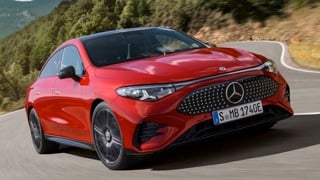General Motors and PSA Peugeot-Citroën has announced the creation of a long-term and broad-scale global strategic alliance.
The partnership aims to use the combined strengths and capabilities of the two companies - particularly joint buying power for components - contribute to the profitability of both partners and strongly improves their competitiveness in Europe.
The alliance is structured around two main pillars: the sharing of vehicle platforms, components and modules; and the creation of a global purchasing joint venture for the sourcing of commodities, components and other goods and services from suppliers, with combined annual purchasing volumes of approximately £80 billion.
Each company will continue to market and sell its vehicles independently and on a competitive basis.
Beyond these pillars, the alliance creates a flexible foundation that allows the companies to pursue other areas of cooperation.
In connection with the alliance, PSA Peugeot Citroën is expected to raise approximately £900 million through a capital increase with preferential subscription rights for shareholders of PSA Peugeot Citroën, underwritten by a syndicate of banks and including an investment from the Peugeot Family Group, as a sign of their confidence in the success of the alliance.
As part of the agreement, which includes no specific provision regarding the governance of PSA Peugeot Citroën, GM plans to acquire a 7% equity stake in PSA Peugeot Citroën, making it the second largest shareholder behind the Peugeot Family Group.
"This partnership brings tremendous opportunity for our two companies,” said Dan Akerson, GM chairman and CEO.
"The alliance synergies in addition to our independent plans, position GM for long-term sustainable profitability in Europe."
Philippe Varin, chairman of the managing board of PSA Peugeot Citroën, said: "This alliance is a tremendously exciting moment for both groups and this partnership is rich in its development potential. With the strong support of our historical shareholder and the arrival of a new and prestigious shareholder, the whole group is mobilized to reap the full benefit of this agreement."
Under the terms of the agreement, GM and PSA Peugeot Citroën will share selected platforms, modules and components on a worldwide basis, in order to achieve cost savings, gain efficiencies, leverage volumes and advanced technologies, and reduce emissions.
Sharing of platforms not only enables global applications, it also permits both companies to execute Europe-specific programs with scale and in a cost effective manner.
Initially, GM and PSA Peugeot Citroën intend to focus on small and medium passenger cars, MPVs and crossovers. The companies will also consider developing a new common platform for low emission vehicles. The first vehicle on a common platform is expected to launch by 2016.
A staement said the alliance enhances but does not replace either company’s ongoing independent efforts to return their European operations to sustainable profitability.
The purchasing cooperation defined in the agreement allows the companies to act as one global purchasing organisation when it comes to sourcing commodities, components and services from suppliers, taking full advantage of the joint expertise, volume, platforms and standardized parts.
Combining GM’s robust global processes and organizational structure with best practices from PSA Peugeot Citroën, will bring significant value and efficiencies to the purchasing operations at both companies.
Additionally, the alliance is exploring areas for further cooperation, such as integrated logistics and transportation. To this end, GM intends to establish a strategic, commercial cooperation with Gefco, an integrated logistics services company and subsidiary of PSA Peugeot Citroën, whereby Gefco would provide logistics services to GM in Europe and Russia.
The total synergies expected from the alliance are estimated at approximately £1.25 billion annually within about five years. The synergies will largely coincide with new vehicle, with limited benefit expected in the first two years.
It is expected the synergies will be shared about evenly between the two companies. The alliance will be supervised by a global steering committee that includes an equal number of senior leader representatives from both companies.
Its implementation is subject to requisite regulatory approvals in certain jurisdictions as well as notification to the appropriate workers councils.
There is no indication yet whether the collaboration will lead to reducing the nomber of vehicle plants each company operates in Europe.



















Mohammed - 14/02/2017 15:25
I was just wondering what market synergies have been created because of this strategic alliance. Have their made any cars together, i understand the bulk of the alliance was due to cost cutting and entering new markets. However i was interested to see if they have produced any new cars together Thanks in advance.